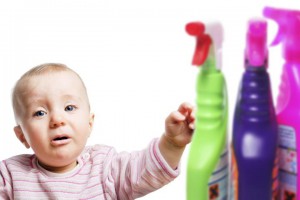Summer in Florida brings pests of all types- from fleas in the home to weeds in the lawn. Molds and mildews are also a challenge in humid weather. There is a common misconception that applying a pesticide involves only controlling insects with insecticides.

Pesticides are applied to a much wider range of products and targets. Pesticides include any products that kill or repel pests–not only insects, but also nuisance animals, weeds, plant pathogens, molds, and others. Pesticides can help us live better by protecting our health, improving our landscapes, keeping our living spaces clean, and protecting our pets. However, when used carelessly they can have harmful effects.
A pesticide may not be necessary for controlling a problem in the home environment. They should be considered a last line of defense; they are only a piece of the pest control puzzle which also depends on nonchemical control. For more information about integrated pest management (IPM), see http://ipm.ifas.ufl.edu/. Pesticides are all poisons to some degree, and all poisons pose some risk. For a detailed explanation of pesticide toxicity, see UF/IFAS EDIS document PI-13, Toxicity of Pesticides http://edis.ifas.ufl.edu/pi008
It may be human nature to think that if a little of something is good, a lot must be better; but regarding pesticides, this is a dangerous misconception that will have negative impacts, such as:
• Environmental harm
• Run off into other areas
• Damage to desirable plants and beneficial organisms
• Unnecessary expense
• It is illegal to apply rates greater than specified by the
products label.
Take the time to review what pesky pest you are targeting and how to control using fewer chemicals.
Resources:
Homeowner’s Guide to Pesticide Safety
Cockroaches and their Management
Children and Pesticides
 0
0
